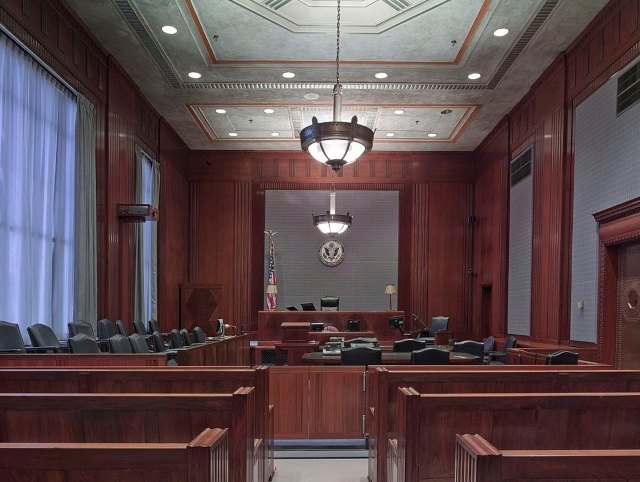Lawyer's Role in Declaring a Habeas Corpus Petition Explained
Lawyer's Role in Declaring a Habeas Corpus Petition Explained
Blog Article
The Details of Declaring a Habeas Corpus Petition: An Overview for Looking For Post-Conviction Alleviation
Browsing the complexities of filing a habeas corpus application is an essential action for people looking for post-conviction relief. As one of the most complex lawful solutions readily available, comprehending the subtleties associated with this procedure can make a considerable difference in the result of a case. From identifying the grounds for filing to meeting the stringent procedural requirements, each action requires meticulous interest to information and a detailed understanding of the lawful structure. By checking out the ins and outs of this necessary legal tool, people can discover possible methods for difficult convictions and ultimately strive for reasonable results.
Understanding Habeas Corpus Requests
When looking for to comprehend habeas corpus requests, it is critical to grasp the fundamental lawful concepts underlying this effective lawful remedy (Lawyer). Habeas corpus, a Latin term meaning "you shall have the body," is a lawful action that permits individuals to look for alleviation from illegal apprehension or jail time. This centuries-old writ functions as a guard versus arbitrary state activity by giving a device for people to test the legality of their arrest
The foundation of a habeas corpus petition is the assertion that the petitioner's constitutional civil liberties have actually been gone against, leading to their illegal apprehension. This can include insurance claims of due procedure violations, inadequate assistance of advice, recently found proof, or perhaps administrative errors. Habeas corpus applications usually emerge in the context of criminal procedures, where people challenge the validity of their convictions or the conditions of their arrest.

Premises for Declaring
There are several lawful premises on which individuals might submit a habeas corpus request, each serving as a basis for testing the lawfulness of their apprehension. These grounds commonly consist of constitutional violations, inefficient help of guidance, recently discovered evidence, prosecutorial misconduct, and jurisdictional issues.
Constitutional infractions develop a common basis for filing a habeas corpus application, including insurance claims such as violations of the right to a fair test, due process, or security versus cruel and unusual punishment. Ineffective aid of guidance claims develop when an offender's lawful representation throughout the trial or allure was so deficient that it weakens self-confidence in the result. Recently found proof, if shown to be worldly and most likely to alter the outcome of the instance, can additionally require habeas relief. Prosecutorial misconduct involves dishonest or unlawful conduct by the prosecution that bias the defendant's rights. Lastly, jurisdictional issues may develop when the court that founded guilty the private lacked the authority to do so, giving a basis for testing the apprehension through a habeas corpus request.
Procedural Needs
Recognizing the step-by-step needs for submitting a habeas corpus petition is vital for making sure that the lawful browse around this web-site procedure is followed precisely and successfully. One fundamental procedural need is the exhaustion of state treatments. This indicates that before a federal court can consider a habeas corpus petition, the petitioner needs to have first offered the cases in state court and went after all available methods of relief. Failing to exhaust state solutions can result in the federal court dismissing the request.
In addition, there are stringent time restrictions for submitting a habeas corpus petition. The Antiterrorism and Effective Capital Punishment Act (AEDPA) enforces a 1 year statute of restrictions, beginning from the day on which the sentence ended up being last. This due date can be subject to certain exceptions based on certain situations.
Moreover, procedural needs mandate that a habeas corpus request should consist of all pertinent cases and supporting evidence. Insufficient or insufficient requests might be rejected or delayed, stressing the importance of comprehensive preparation and adherence to step-by-step policies in seeking post-conviction relief via habeas corpus.
Challenging Convictions
Exactly how can people efficiently challenge sentences through the process of submitting a habeas corpus petition? Testing sentences with a habeas corpus request includes presenting legal debates that demonstrate an infraction of constitutional civil liberties, procedural errors, or brand-new proof that was not offered during the initial test. To be successful in testing a sentence, petitioners should reveal that there was an essential defect in the criminal process that caused a wrongful sentence or an unjustified sentence. This could include ineffective aid of guidance, prosecutorial misconduct, recently discovered evidence of innocence, or offenses of the petitioner's humans rights. Lawyer.
When submitting a habeas corpus request to test a conviction, it is critical to stick to rigorous step-by-step needs, existing compelling legal arguments supported by proof, and express just how the alleged mistakes influenced the fairness of the test. utah federal habeas corpus attorneys. Seeking the assistance of knowledgeable legal specialists or organizations focusing on post-conviction alleviation can considerably boost the opportunities of an effective result when challenging convictions through a habeas corpus application

Safeguarding Fair Outcomes
To accomplish reasonable outcomes in challenging sentences via the declaring of a habeas corpus request, people must diligently evaluate the legal basis for their claims and present compelling evidence supporting their assertions. Protecting reasonable outcomes in post-conviction alleviation process requires an extensive understanding of the legal system, attention to information, and critical planning. It is necessary to have a clear method in position, describing the details premises for the request and exactly how today evidence lines up with lawful arguments.
Additionally, individuals seeking post-conviction relief needs to comply with all procedural requirements and target dates to guarantee their application is taken into consideration by the court. Failure to satisfy these needs might result in the termination of the application without the qualities being reviewed. Additionally, engaging the services of skilled lawful specialists, such as lawyers concentrating on habeas corpus petitions, can significantly enhance the possibilities of protecting fair end results.
Conclusion
Finally, the complexities of submitting a habeas corpus petition for seeking post-conviction relief involve recognizing the grounds for filing, meeting step-by-step needs, testing sentences, and protecting fair end results (kansas federal habeas corpus attorneys). It is necessary to very carefully browse the legal procedure to ensure the ideal possibility of success in seeking relief through this opportunity. Comprehending the complexities of habeas corpus applications is important for people looking for to test their sentences and acquire justice
Report this page